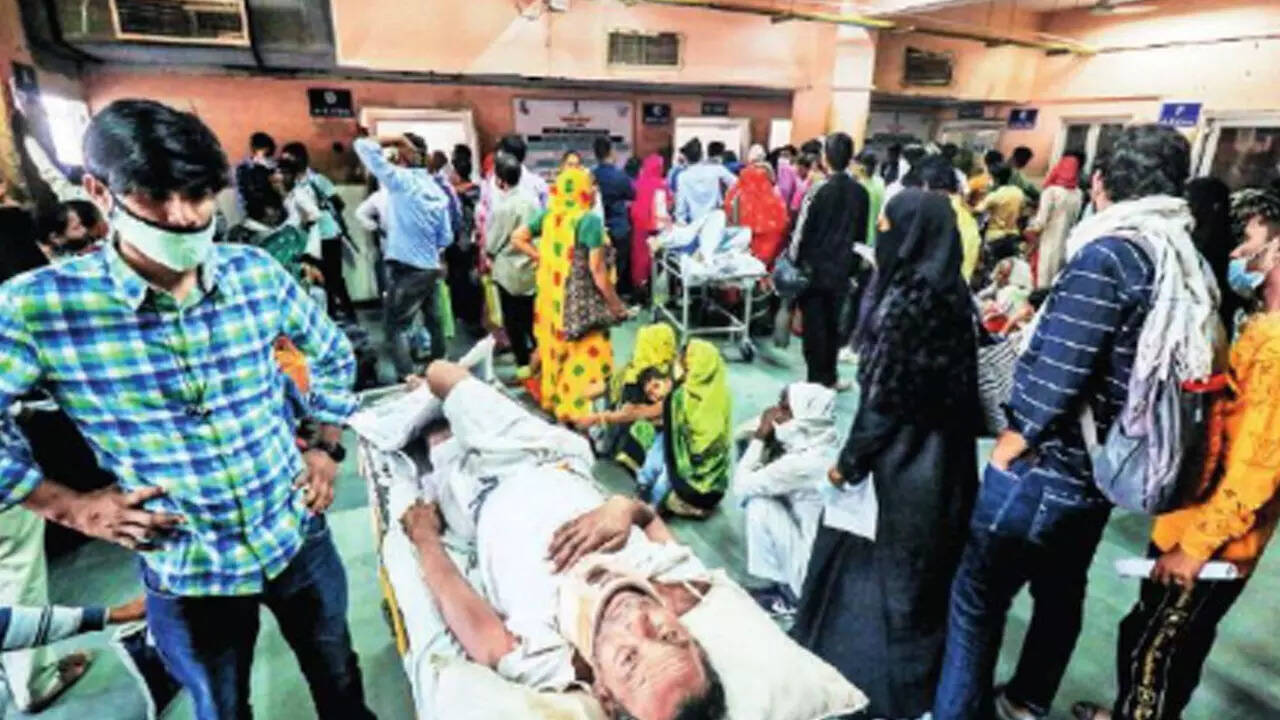Rajasthan
Rajasthan: Doctors’ associations, experts back RTH Bill | Jaipur News
While doctors in Rajasthan continue to protest against the state’s Right to Health Bill, many associations of doctors and public health experts have issued statements supporting the bill, which aims to make healthcare a legal entitlement for all residents of Rajasthan.
Welcoming the effort, Jan Swasthya Abhiyan, a network of associations of doctors and public health experts, said in a statement:
“Rajasthan has initiated the process of making basic health services a justiciable right, based on providing legal guarantee of public health services and emergency healthcare in the state, setting a historical example for the rest of the country.”
JSA criticised what it saw as the misinformation being spread by certain lobbies claiming that the act is anti-private sector, and their politically motivated demand that the Act should be withdrawn.
At the same time, it sought modification and clarification of several provisions in the Act to ensure optimal and effective implementation.
Association of Doctors for Ethical Healthcare (ADEH) also welcomed the law but urged the government to address the core issues causing the unrest regarding the scope and extent of coverage. JSA and ADEH sought greater clarity regarding the definition of emergency care keeping in view the complexity of emergency management.
Both associations also stressed the need to ensure that reimbursement to private providers for emergency treatment be made transparent, hassle-free, corruption-free and time-bound.
JSA sought enhancing of the health budget and strengthening of public health services to fulfill the provisions of the Act.
It also sought strengthening of mechanisms to ensure accountability and a robust grievance redressal system for patients and doctors.
Taking note of the state government’s promise to address many of the issues, JSA and ADEH urged the IMA and involved medical professionals to reconsider their position, and to positively engage with and support the rolling out of the Act and its rules.
Punjab-based Indian Doctors for Peace and Development (IDPD) issued a statement that the right to health is one of the basic human rights for which the government owns the primary responsibility, but that the doctors too were bound medically and ethically.
“No doubt every doctor is duty bound morally and ethically to give medical aid in case of emergency but their genuine grievances should be sorted out through dialogue,” stated IDPD.
It added that it would be wrong to paint all doctors with the same brush.
Welcoming the effort, Jan Swasthya Abhiyan, a network of associations of doctors and public health experts, said in a statement:
“Rajasthan has initiated the process of making basic health services a justiciable right, based on providing legal guarantee of public health services and emergency healthcare in the state, setting a historical example for the rest of the country.”
JSA criticised what it saw as the misinformation being spread by certain lobbies claiming that the act is anti-private sector, and their politically motivated demand that the Act should be withdrawn.
At the same time, it sought modification and clarification of several provisions in the Act to ensure optimal and effective implementation.
Association of Doctors for Ethical Healthcare (ADEH) also welcomed the law but urged the government to address the core issues causing the unrest regarding the scope and extent of coverage. JSA and ADEH sought greater clarity regarding the definition of emergency care keeping in view the complexity of emergency management.
Both associations also stressed the need to ensure that reimbursement to private providers for emergency treatment be made transparent, hassle-free, corruption-free and time-bound.
JSA sought enhancing of the health budget and strengthening of public health services to fulfill the provisions of the Act.
It also sought strengthening of mechanisms to ensure accountability and a robust grievance redressal system for patients and doctors.
Taking note of the state government’s promise to address many of the issues, JSA and ADEH urged the IMA and involved medical professionals to reconsider their position, and to positively engage with and support the rolling out of the Act and its rules.
Punjab-based Indian Doctors for Peace and Development (IDPD) issued a statement that the right to health is one of the basic human rights for which the government owns the primary responsibility, but that the doctors too were bound medically and ethically.
“No doubt every doctor is duty bound morally and ethically to give medical aid in case of emergency but their genuine grievances should be sorted out through dialogue,” stated IDPD.
It added that it would be wrong to paint all doctors with the same brush.





